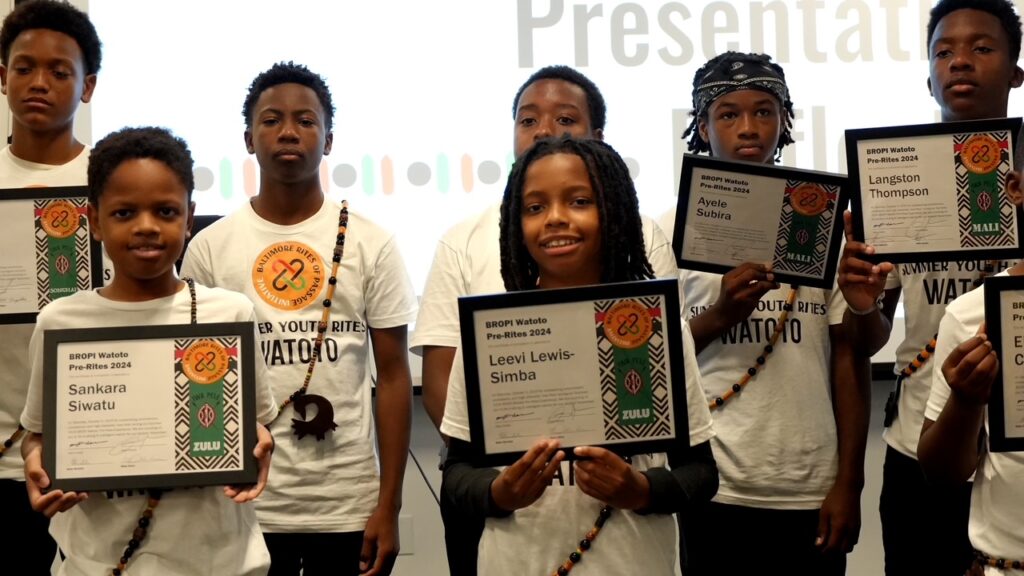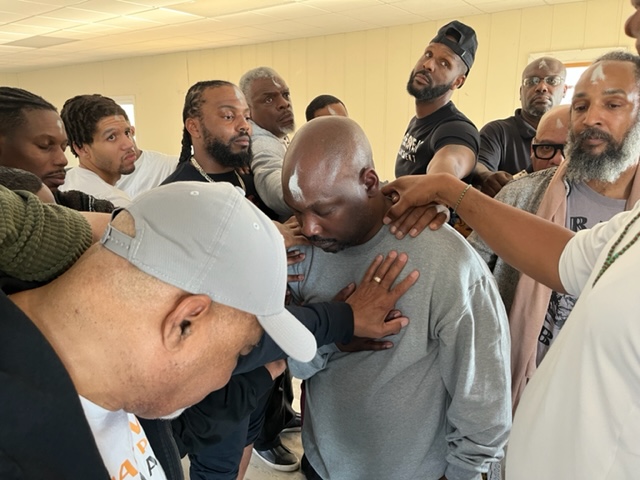In most indigenous cultures, the rites of passage initiation mark a critically important transition from boyhood to manhood. These historically and culturally significant rituals provide families, boys, and men with a framework for understanding the power of identity and purpose within the context of the larger society.
Traditionally, within Black communities, the Maafa (Transatlantic Slave Trade) disrupted our traditional ways of life, including our rites of passage process. The dehumanization of African people led to the stripping away of our music, food, culture, language, folklore, and communal living. However, our communities have shown remarkable resilience, a testament to the strength and determination of our people. Despite the most devastating part of this tragedy, which included the dismantling of the traditional process for socializing the healthy development of womanhood and manhood, our communities have persevered, inspiring hope for the future.
The consistent lingering effects of trauma from the period of enslavement are etched into our historical memory. The raping of our women, the daily degradation of plantation life, and the public lynchings of men have been well documented through the annals of history. Decades later, Black Americans still suffer from the vestiges of the period of enslavement, Reconstruction, and Jim Crow. As Dr. Joy Gury indicates in her critically important work focused on Post Traumatic Slavery Syndrome, “Although slavery has long been a part of human history, American chattel slavery represents a case of human trauma incomparable in scope, duration and consequence to any other incidence of human enslavement.”
The generational trauma as a direct result of the period of enslavement has severely impacted the Black community’s ability to raise healthy children and families and reclaim communities holistically. While we have brilliant examples of Black Americans succeeding against the odds, which include graduating from college, homeownership, and raising children, as well as boldly confronting racism and white supremacy, an alarming number of Black people struggle with identity and purpose.
Derrick Bell, author of the seminal text, Face at the Bottom of the Well: The Permanence of Racism, indicates, “It appears that my worst fears have been realized: we have made progress in everything, yet nothing has changed.” Bell’s keen analysis on the cumulative impact of racism and its debilitating effects is seldom acknowledged by the general society.
The struggles are evident when visiting predominately Black communities with alarming rates of poverty, escalating rates of incarceration among men, women, and juveniles, and dialysis centers on every other corner. The news reports are disheartening, and many times echo the stories of a 14-year-old being arrested for double homicide or a 16-year-old driving a stolen car, crashing and killing an Uber driver. These challenges are a stark reminder of our communities’ systemic issues and call for empathy and understanding. It is crucial that we, as a collective, bring about positive change by genuinely understanding the root causes of these issues and engaging in a commitment to make a difference.

Over the last thirty years, I have dedicated my life to supporting Black men and boys’ healthy social, emotional, and spiritual development. The spiritual and cultural fatigue of being Black in America causes many to participate in various forms of “escapism,” which manifests in substance abuse, intimate partner violence, gambling, and a host of other self-defeating, inappropriate, and self-deprecating behaviors.
I firmly believe that using a cultural framework to engage Black men and boys is our most powerful tool to disrupt the ongoing psychological trauma faced. African-centered Rites of Passage models frame the “Motherland” as our source of cultural and familial life, referring to Africa as the birthplace of humanity and the origin of many cultural practices. This process underscores the importance of rituals to signify biological and social milestones such as birth, maturity, reproduction, and death, offering a path to healing and resilience, a beacon of hope in our journey towards a brighter future.
A fundamental journey for young men through Rites of Passage models is understanding the history and culture of African people and our contributions globally. Additionally, young Black males internalize the importance of honoring Black women, caring for elders, and strategies for building communities versus tearing them down. Daily living principles like the Nguzo Saba (Dr. Maulana Karenga’s Principles of Kwanzaa, which include unity, self-determination, collective work and responsibility, cooperative economics, purpose, creativity, and faith) and MAAT (an ancient Egyptian concept of truth, balance, order, harmony, law, morality, and justice) should become benchmarks and codes of conduct for community governance.
Given the challenges Black families are facing, Black fathers and Black men from the larger community must undergo African-centered Rites of Passage initiation to be qualified to usher young Black males through the process. Reconnecting Black men to our cultural greatness ensures that our sons have the spiritual weaponry and knowledge, such as a strong sense of identity, resilience, and a deep understanding of their history and culture, to confront the racial hegemony that is as integral to the American landscape as breathing.
Their role is not just crucial; it is indispensable in providing guidance, support, and mentorship to the younger generation. Their active participation is essential for the success of the Rites of Passage models. These models can also incorporate entrepreneurship, workforce development, and other program models framed through an African-centered lens. Your role is not just important; it is valued and respected.
Without guidance and nurturing, we will continue to experience large numbers of Black men and boys who slip through the cracks and find themselves unable to compete locally, let alone globally. Rites of Passage models use a cultural framework rooted in ‘understanding a knowledge of self,’ emphasizing the importance of centering our humanity, self-awareness, and self-respect. These models introduce drumming, dance, African languages, and customs, honoring the ancestors, giving life meaning and purpose, and other areas focused on thriving versus surviving.
According to noted clinical psychologist and elder Dr. Naim Akbar, “It is through self-celebration that we heal our damaged self-esteem. Yes, feeling good about oneself is a legitimate activity in many cultures. Any culture that does not make its adherents feel good about themselves is a failure as a culture.” Dr. Akbar’s words echo a clarion call that we must be one hundred percent focused on our healing.
Dr. David C. Miller, Co-Lead, Baltimore Rites of Passage Initiative, researcher, and author of Dare To Be King: What If the Prince Lives?





